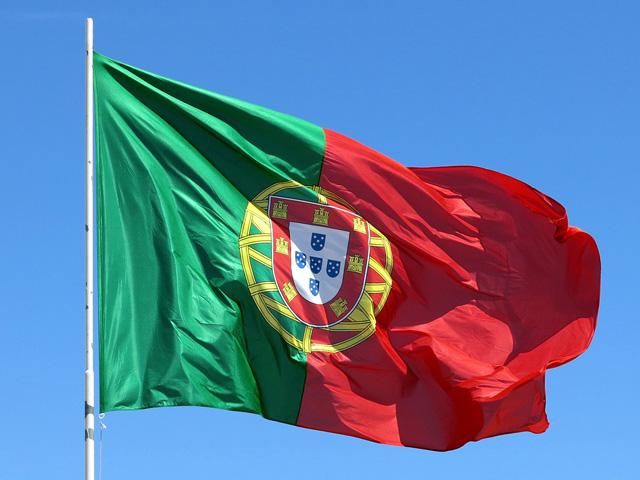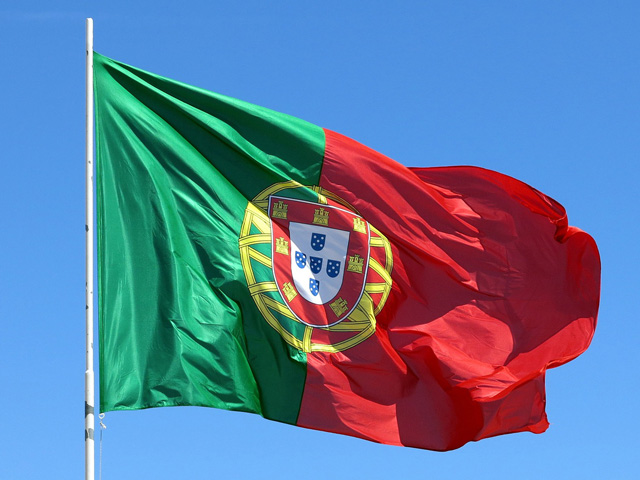An Urban's Rural View
Visiting a COVID Model Country
I just spent 20 days in a country as small as Indiana but as agriculturally diverse as California.
Portugal was the perfect place for my first international trip since COVID-19 arrived. Thankfully, 86% of the country's 10 million people are fully vaccinated. I didn't pick Portugal because it has one of the world's highest vaccination rates, but I was glad when I learned it did.
In the United States, deaths from COVID have fallen from around 2,000 a day to around 1,400 as the delta variant surge recedes. But in Portugal they're down to around six a day. If the U.S. with its 330 million people had a comparable death rate, we'd be losing only 200 a day to the pandemic. In other words, the U.S. death rate is seven times worse than Portugal's.
This October was the perfect month for a visit, and not just because of the low COVID risk. Normally Portugal is overrun with tourists, but tourism is just starting to pick up. At times my wife and I felt like we had the place to ourselves. The weather was sunny with temperatures in the 70s and 80s Fahrenheit almost every day.
We began by touring Lisbon, Portugal's capital. We made stops in Coimbra, a town boasting one of Europe's oldest universities, and Porto, the birthplace of Prince Henry the Navigator, who initiated the path-breaking Portuguese explorations 500 years ago.
In Porto we met up with three friends and two guides from Birding Ecotours, a company that specializes in birding tours. We'd asked for a somewhat different kind of trip.
P[L1] D[0x0] M[300x250] OOP[F] ADUNIT[] T[]
Yes, we wanted to watch birds -- all five of us are birders and love to spend long hours in the field. But we also wanted to visit wineries and take in some of the historical and cultural sites. We asked for, and got, a slower pace and nicer restaurants and hotels than are the norm with intensive birding tours.
Our 10 days in a Mercedes van took us east to the Spanish border, south along that border to the Algarve with several forays inland and finally back to Lisbon. We didn't see the whole country, but we saw a lot of it.
And what a country it is. The agricultural landscape is both beautiful and fascinating. Portugal raises what seems like practically everything -- corn and wheat, almonds, mangos, papayas, lemons, limes, apples, potatoes and every imaginable vegetable.
Portugal makes most of the world's wine-bottle corks; we spent a few minutes examining cork trees. Our final day of birding we drove through endless rice paddies south of Lisbon. It's harvest time and thousands of storks and flamingos were in the fields, many of them following the combines, feasting on the stubble the machines leave behind.
In Portugal, groves of olive trees and wine-grapevines stretch on endlessly everywhere. From the van we saw cattle and sheep and the country's famous black pigs. There are salt pans on the country's estuarial rivers; when the Portuguese explorers visited Asia back in the days before refrigeration, they traded salt for spices, porcelains and silks.
Salt is still a big deal in Portugal. The most famous Portuguese dish is bacalhau-salted cod. European Union fishing quotas limit the country's ability to catch all the cod it consumes, a guide told us, so the Portuguese import fish from Norway.
Despite its high vaccination rate and low death rate, Portugal hasn't thrown COVID caution to the winds. Mask mandates are easing but many Portuguese still wear masks. In restaurants and hotels, the staff are invariably masked but many of the patrons are not. In practice, masks seem to be optional.
Around the world countries are opening up again, determined to get back to something approaching normal. Portugal may be showing the world how to do it.
Portugal seems prepared to live with COVID at low levels. In that it differs from the U.S., which seems destined to live with COVID at relatively high levels. It's particularly distressing to see rural death rates in the U.S. rising even as the nation's overall death rate is falling.
A key difference is vaccinations. In January, Portugal was experiencing nearly 300 deaths a day. Once vaccines were available, a military man was put in charge of distributing them and convincing people to take them. It worked. (See https://www.nytimes.com/…) As three different Portuguese told us, "We Portuguese believe in vaccinations."
Portugal is not a zero-COVID wannabe country like China. Someone I know, a journalist who lives in Hong Kong, traveled to Shanghai recently on assignment. He had to spend three weeks in quarantine, the first two at a hotel not of his choice eating food not of his choice. China is still locking down whole cities in response to single cases.
To me, Portugal seems to have found the sensible middle ground between China, with its determination to squelch COVID completely, and the U.S., where so many people resist vaccinations and masks and shrug their shoulders at high death rates. If the world must learn to live with COVID, as many experts think, Portugal's way of living with it offers a worthy model.
Urban Lehner can be reached at urbanize@gmail.com
(c) Copyright 2021 DTN, LLC. All rights reserved.






Comments
To comment, please Log In or Join our Community .